THE EMMY-WINNING HOST AND ICONIC AMERICAN ACTRESS SHARES HER OWN MENTAL HEALTH STRUGGLES AND EXPERIENCES.











C
The Magazine of Community Access
ANA MORÁN: FOOD
TENANTS
THE STRENGTH IN STRUGGLE
BUILDING HOMES FOR 8,000 PEOPLE
JUSTICE FOR ALL What Makes a Home
WAISHEUNG DIAZ, SCOTT AMADORI, AND OTHERS SHARE: And Much More!
Welcome to River Avenue, our 21st supportive and affordable housing program opening soon in the Bronx.


 1169 River Ave
Project team: Maddd Equities LLC; Alembic Community Development; Aufgang Architects; Urban Quotient; Joy Construction Corp 245 units in lease-up
1169 River Ave
Project team: Maddd Equities LLC; Alembic Community Development; Aufgang Architects; Urban Quotient; Joy Construction Corp 245 units in lease-up
WELCOME
Dear friends,
Each edition of C Magazine gives us an opportunity to introduce you to some of the people who make Community Access what it is—participants who access our services and the staff members who make our programs possible.



We are living in hard times. Our city is facing an unprecedented housing crisis—nearly 70,000 people are in our shelter system as of early 2023 estimates. At the same time, the disruption and losses of the last three years have left most of us rattled and in need of tools to support our emotional well-being.
While I don’t deny the magnitude of the issues we are facing, I can tell you why I believe there is reason to be hopeful, and why I think Community Access is poised to be a larger part of the solution.

For nearly 50 years, Community Access has dedicated itself to leaning into the intersection of housing and mental health—and we have learned so much. For one, we know that for people to reach their potential, they have to have stable housing. It is only once there that someone can move on from basic survival to fulfilling other needs, like meaningful social connections, learning, and work. Our supportive housing approach rejects the idea that someone must demonstrate certain qualities before they are ready to be housed. Put simply: Housing is a human right. That’s why, over the next few years, we’re doubling our existing housing portfolio and looking forward to providing homes to more than 8,000 New Yorkers.
We understand that the majority of a person’s well-being is determined by variables that exist outside the walls of doctors’ offices and hospitals. That’s why we develop and sustain services and programs that support our community members in achieving their goals. Whether people want to go back to school, gain workforce training, make friends, or just stay out of the hospital, we’re there to support them along the way. Over the next few years, we’re investing more resources into building out these programs to reach even more New Yorkers.

For decades, we have sounded the alarm about the ways in which our city and state systems can perpetrate harms against those they claim to support.

We’re redoubling our advocacy efforts to ensure that the government invests its resources into communitybased services that are equitable, human-centered, and rights-based. We will do this using the same values we have espoused since our founding all those years ago. People are experts in their own lives, and we must take our lead from them if we ever hope to move on from the inadequacies of the current system to one that is rooted in human dignity and individual agency.
I’m incredibly grateful to our staff, who work day in and day out to fulfill our mission. And to our funders and donors who know, as we do, that the work of housing people and supporting them in their journeys is essential if our city is to become a more equitable place.
In the pages ahead, I invite you to read more about our incredible community—participants and staff alike—who make Community Access what it is today.
 Cal Hedigan Chief Executive Officer
Cal Hedigan Chief Executive Officer

OUR PATH AHEAD
Strategic Plan 2023 to 2027




There’s a lot to contend with in our city: growing social and economic inequalities, increasing levels of homelessness, COVID-19 health and mental health impacts, ongoing effects of structural racism, fractured mental health care systems, policies negatively impacting human rights, and so many other roadblocks detrimental to people’s recovery and well-being. It is time for real change in New York City, and Community Access has set some big, bold goals to be a larger part of the solution for NYC’s recovery.
GOAL 1: Accelerate the development of housing to increase opportunities for individuals and families to move out of shelters and into homes of their own.

We are redoubling our real estate development efforts, adding new positions and infrastructure that will dramatically increase our ability to build new housing. We’ll grow from 2,000 to 4,000 units to provide housing for people living with mental health concerns; frail, elderly individuals; and families with children: homes for more than 8,000 people!

GOAL 2: Invest in programs to enhance community integration and help people access opportunities to live longer, healthier, self-determined lives.
We are also reinforcing our commitment to other social drivers of health: enhancing access to quality primary care and mental health care, healthy food, opportunities for community participation, and training and education to help people build skills and improve economic circumstances.
GOAL 3: Increase our thought leadership and advocacy to shape policy and services around homelessness and mental health toward those rooted in human dignity, recovery, and inclusion.
There is a critical need in NYC for a rebalancing of resources to invest substantially more funding toward affordable housing and to transform the mental health care system. We’ll move these needles through investing in advocacy and public policy and via a comprehensive program evaluation framework to demonstrate the efficacy of our services and practice approach.

HOUSING DEVELOPMENT PIPELINE






200 East Tremont Avenue Project team: Maddd Equities LLC 130 units in pre-development 1461 Bryant Ave Project team: Blue Sky Bronx, LLC; Edelman Sultan Knox Wood Architects; Bruno Frustaci Contracting 70 units in pre-development 1185 River Ave Project team: Blue Sky Bronx, LLC; Irgang Group; Edelman Sultan Knox Wood Architects 276 units in pre-development Baez Place (334 East 176th St) Project team: Blue Sky Bronx, LLC; Edelman Sultan Knox Wood Architects; Joy Construction Corporation 154 units in construction 521 East Tremont Ave Project team: Mega Contracting Group; Community Healthcare Network; SLCE Architects 205 units in pre-development
With close to 1,000 units in the housing development pipeline, the next wave of Community Access real estate is well underway!
Home Sweet Home




Army veteran Waisheung Diaz works full-time as a mental health peer specialist at a treatment center in Brooklyn. Scott Amadori has built a career as an interior designer and floral artist. And, their lives are forwardlooking and filled with friendships and family.



Their journeys before Community Access included many ups and downs: Waisheung lived for years in a women’s shelter in Queens, and Scott dealt with housing court and psychiatric hospitalization. We visited them in their beautiful apartments recently to discuss why having a home matters so much—and makes a difference in their lives.



Waisheung Diaz: GivingBack ThroughService
A mother of six and grandmother to five, Waisheung Diaz certainly has her hands full as the family matriarch—which makes it all the more impressive that she is currently pursuing a degree in human services at Metropolitan College of New York, while also holding down a full-time job.

She wasn’t always able to juggle so much, and she credits her family’s 2020 move into supportive housing at Bruckner Boulevard in the Bronx as the stabilizing change she needed to pursue these goals.
“I’m a veteran. I did six years with the United States Army and was diagnosed afterwards with PTSD, which really disrupted my life. I spent years living at a women’s shelter in Queens. Anxious. Fearful. And, the conditions in the shelter system only fueled my depression.”
Her health and well-being improved when she moved into her new apartment. “It was like a big heavy jacket just fell off. I felt less edgy. I could bake and cook again. My children and I could come and go as we pleased. We were free.”
One of the best parts of moving into Bruckner was reuniting with Ocho. “I’ve had Ocho since she was a puppy, but I had to leave her with friends because she wasn’t allowed at the shelter. Ocho is family. Having her back with me and my kids has made Bruckner really feel like home.”
Waisheung also appreciates the support services that staff offer at Bruckner. She is quick to shout out to Kaalvin, the Youth Advocate on site, who has been an important role model for
her sons. “He’s another adult my children can speak to. He helps with homework, and all the staff here really make time for us.”
That also includes Waisheung’s service coordinator who encouraged her to apply for Community Access’ Howie the Harp job training program in Harlem. Waisheung enrolled and thrived in the program, completed training in 2021, and was quickly hired by RevCore Recovery Center in Brooklyn as a mental health peer specialist and receptionist.
“Melissa, the program director at Bruckner, also helped me pick a good school for continuing my studies. Now, I’m the first person in my family to attend college. My goal is to make a career advocating for veterans. Once we get out of the Army, we often feel forgotten. So many vets turn to drugs and alcohol and experience homelessness. I’m stably housed now, so I can focus on helping others.”
SScott Amadori: ADesignforLiving
For 18 years, Scott worked as a contributing fashion editor for Harper’s Bazaar and Vogue He was highly successful and traveled the world on major marketing campaigns. When he felt ready for a career change, Scott began styling with flowers. He did arrangements for major institutions like the MoMA and notable figures like Gloria Steinem and Helen Gurly Brown, Editor in Chief of Cosmopolitan.

Then in 1997, Scott was hit by a car. With severe injuries, he was unable to work for nearly two years. After eventually getting back on his feet, Scott’s luck ran out again. He was badly beaten in a mugging and lost a lot of teeth. He also experienced debilitating kidney stones and developed a dependency on the Vicodin he was taking for the pain. As his seasonal work ebbed, Scott fell behind on rent and wound up in housing court facing homelessness.
“I never could have imagined when I was at the height of my career that I could fall so far. I felt so ashamed. I didn’t recognize my life, and I became suicidal.”
W
“I’m the first person in my family to attend college. My goal is to make a career advocating for veterans who often feel forgotten. I’m stably housed now, so I can focus on helping others.”
— Waisheung Diaz
Scott shares that he received help from a therapist and was admitted to a psychiatric hospital. It is there that he resolved to reclaim his life. Shortly thereafter, he moved into supportive housing with Community Access at Gouverneur Court in the Lower East Side, and a new journey began.
“I’ve been here 16 years now, and I can proudly say that I love the home that I’ve made. I’ve created a space that I love being in and welcoming others.”
Scott speaks with pride about his current design projects for clients—the shop window displays and homes he is hired to decorate, but he speaks with special love about his life at Gouverneur Court.



“I always decorate the lobby for the holidays and do seasonal floral arrangements for the staff’s offices. That’s my gift back to the community each year. And during the COVID times when community spaces were closed as part of the response to the public health emergency, I spent summer months in the building’s garden pruning the trees, weeding, and planting.”
The Gouverneur Court garden includes a beautiful fountain contributed to Community Access by the late Brooke Astor, which went through restoration in 2022.

“The building surprised me one day in August. I got a call from the program director to come outside—and the fountain was back on! It felt like a birthday present, and a spotlight on this beautiful place I truly enjoy coming to in order to relax.”
“I have support. I also have a family. My children have even built a bond with some of the staff here and other kids that live in the building. They get to learn different activities and things like that. So, it’s not just something that means a lot to me, but also my children.”
“Ever since Community Access gave me a home, it made my life ten times better than it was before. My family looks at me differently, because I’m independent. I don’t have to look toward them for help or anything.”

“I never had a pet before. I was emotionally all over the place, because it was a new place and new people, new everything. So I was still kind of emotionally closed, and when I got the dog through Pet Access, my world opened up.”

I’m the first person in my family to attend college. My goal is to make a career advocating for veterans who often feel forgotten. I’m stably housed now, so I can focus on helping others.”
— Waisheung Diaz
“I can proudly say that I love the home that I’ve made. I’ve created a space that I love being in and welcoming others.”
— Scott Amadori
— KALISHA REID Tenant at Bruckner Boulevard
— JOSE RODRIGUEZ Tenant at Cedar Avenue
— DANIEL JARAMILLO
Tenant at Tinton Avenue
Ana Morán (she/they) joined Community Access in 2015 as the Community Food Coordinator on our Health and Wellness team. She has since become a part of the fabric of our organization’s culture working to build community and health justice through activities centered on growing, cooking, and crafting with food. For Ana, this work represents so much in people’s lives: friendships, storytelling, and togetherness.



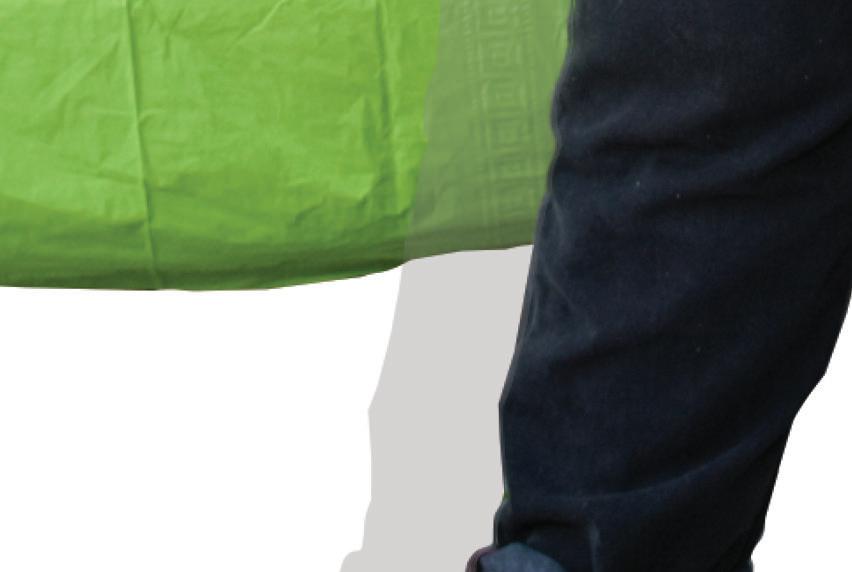











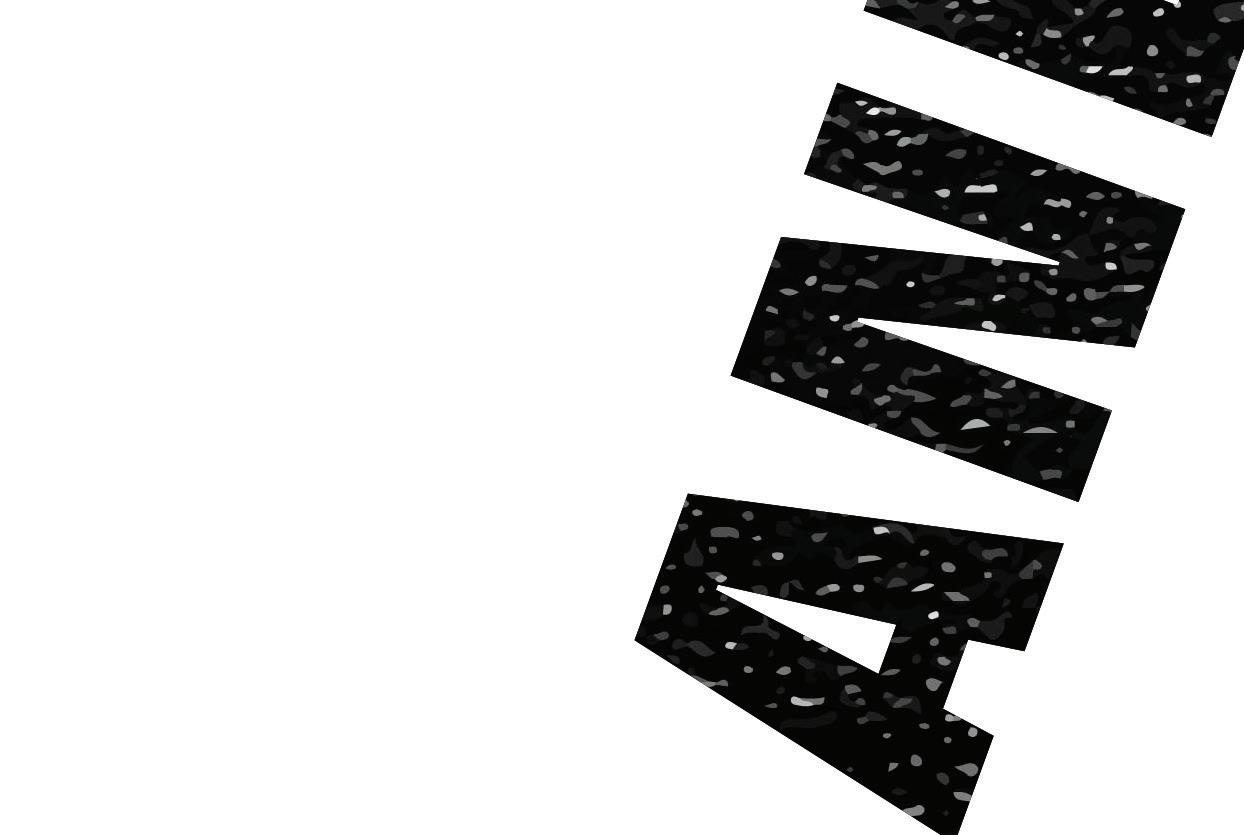














“If you’re well, then I’m well. Our liberation is tied together”
— Ana Morán
In a city where food inequity and hunger create so many dangers and harms for hundreds of thousands of individuals and families with children every day Ana’s work with Community Access is vitally needed to help address the serious food shortages that people face by providing access to nutrient-dense, affordable, and culturally appropriate food for all.
“I grew up in Guatemala where it’s very common to have a little space at home where you can grow your basics—like tomatoes, peppers, and onions. In Guatemala, basics also include mango and avocado trees. At my grandma’s house, you would literally be stepping on avocados! It was easy to take for granted.”

At Community Access, Ana supports our urban farm, gardens, food activities, and growing beds at housing sites all over town; plans community meals; shares recipes; and organizes do-it-yourself crafting activities with oils, herbs, and other plants. Ana loves skill-sharing and has worked with the community to make everything from herbal teas and lip balm to environmentally friendly soaps and detergents, what the Health and Wellness team calls “Love Yourself/Love Your Home.” Tenants have even taken part in entrepreneurial projects like growing red peppers for Small Ax Peppers Hot Sauce in the Bronx, through which they earn a percentage of income from sales.
“I am a peer,” says Ana, explaining how her life experiences as queer, fat, disabled, and as someone who was previously undocumented inspires her work. “I’ve had many mental health crises throughout my life. I’ve struggled with poverty, hunger, and housing insecurity. I’ve been arrested. I’ve been discriminated against within the medical system. I’ve survived the public benefits system. These experiences make me relatable, and I feel solidarity with the people we serve.”

Ana came to Community Access with previous experience as a food vendor and seller of Guatemalan goods. Her previous experience in the restaurant industry as well as her strong community organizing skills she obtained from her time with Make the Road New York, a nonprofit dedicated to empowering immigrants and working class communities to achieve dignity and justice, inform her work today.
“I approach my work using a participatory model of justice. I ask our staff, tenants, and program participants as many questions as I can, and I listen. This way I learn about our community to find out what they are interested in doing and to inspire collaboration.”
Ana speaks passionately about food justice and harm reduction, and about building an inclusive community that, in particular, works diligently to engage Black and Brown individuals and people living with mental health concerns who are too often excluded in other spaces. Ana especially appreciates the value that Community Access places on selfdetermination.
“The food system in this country is unjust. Think about how many people don’t have access to food and who doesn’t have food. Think about how much shame and stigma are attached to certain foods and ways of eating.”
“A food justice lens does not blame people for their eating habits or for getting sick from their food, but instead critiques the system that makes food unhealthy, inaccessible, or too expensive for certain neighborhoods and people.”




Ana wants everyone to have access to food that is nutrient-dense, comforting, and culturally appropriate, and she uses food to fight stigma and isolation.
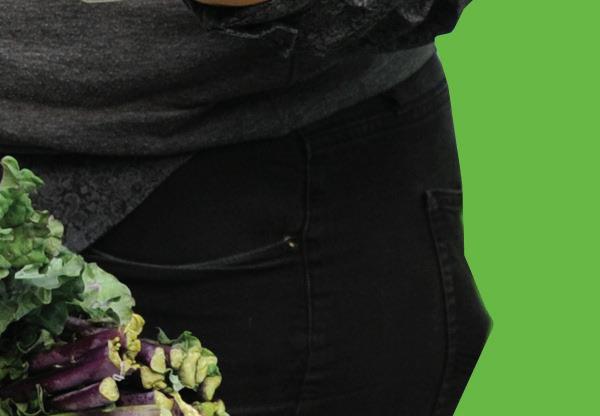
“I love preparing community meals as a community. Everyone chooses a different role—one person will be chopping, one person is in charge of the music, someone else is

arranging the table. And then we sit across from each other and break bread together.”
“It’s been really beautiful to see everyone sitting down and eating together. Even tenants who didn’t used to get along begin to sit and eat together, and I’ve seen some become best friends.”
Ana gets emotional when reflecting on the isolation everyone experienced during the pandemic and remembering the Community Access tenants who have passed away in recent years. “Ultimately, I am so grateful for every participant who has allowed me into their lives, and into their homes. The ones we’ve lost are still guiding me, and I am still making space for them today.”

Diversity, Equity, Inclusion, & Access


































COMMUNITY ACCESS SHARES OUR WORK TOWARD BECOMING AN ANTI-RACIST ORGANIZATION










There can be no social justice without racial justice. We are proud to share the work we’re doing and the path we’re taking to do this important work.
Over the past several years, Community Access (CA) has embarked on a journey to become an explicitly anti-racist organization. Our journey began with reflection and assessment, and included establishing a Diversity, Equity, Inclusion and Access Steering Committee (DEIA) and developing an action plan to move this work forward.



The DEIA Steering Committee is made up of staff at all levels from across the organization. The Steering Committee is charged with leading CA’s efforts to become an explicitly anti-racist organization and ensure that CA practices promote diversity, equity, inclusion and access across the agency.









In addition to other priorities, such as the rollout of CA’s Racism in the U.S. training to all staff and hosting drop-in sessions to provide staff support and celebrate diverse cultural traditions and identities, the Steering Committee developed Community Access’ Racial Equity Statement and established racial equity as a core organizational value. We are happy to be able to share the statement with a wider audience here.
 20 people in the call
Cecelia Hoskins
Asher Harris Scuria Rahman Ana Morán
Antwan Rucker Cal Hedigan
Romie Grant Tara Donahue
Khadeidra Allen
Murial King
Chris Barrey
Tanaya Santiago
Jon Rowe
Melissa Toonkel
Angela Mora
Aurora (Rorie) Brito Erica Enleton Michelle Des Roches
Barbara Laing
Nike Williams
20 people in the call
Cecelia Hoskins
Asher Harris Scuria Rahman Ana Morán
Antwan Rucker Cal Hedigan
Romie Grant Tara Donahue
Khadeidra Allen
Murial King
Chris Barrey
Tanaya Santiago
Jon Rowe
Melissa Toonkel
Angela Mora
Aurora (Rorie) Brito Erica Enleton Michelle Des Roches
Barbara Laing
Nike Williams
RACIAL EQUITY STATEMENT
Becoming an explicitly anti-racist organization is critical to our mission. Systemic racism is at the root of generational inequity that persists in our country, and impedes access to education, housing, healthcare, career advancement, wealth and economic stability, safety, compassion, and fulfillment.
We name racial equity as a Community Access core value because we have not done so in the past. We are committed to understanding and addressing the harms caused by racism and anti-Blackness in the lives of the participants we support and the people who work at Community Access. This commitment exists alongside the need to address power dynamics that function across other group identities such as disability status, gender, sexuality, religion, and socio-economic status.

We are committed to:
Increasing inclusion, belonging, equity, and access so that we can be a part of a world where anti-racist activities are the norm, both within our organization and in our advocacy in the wider community.
Examining our agency culture, practices, protocols, and habits with an understanding as to how they advance or impede our antiracist journey.
Identifying harms BIPOC participants and staff experience systemically and personally while working to correct our practices, even when this means having brave conversations and changing.
Providing transparency by reporting on key Diversity, Equity, Inclusion, and Access metrics.

Dedicating resources to ongoing anti-racist work and learning from our successes and our challenges
“This is important work that should be addressed at all levels: in education, at work, and in the medical field. All these different areas have a real impact on not only the Black community but on all communities that experience oppression.”
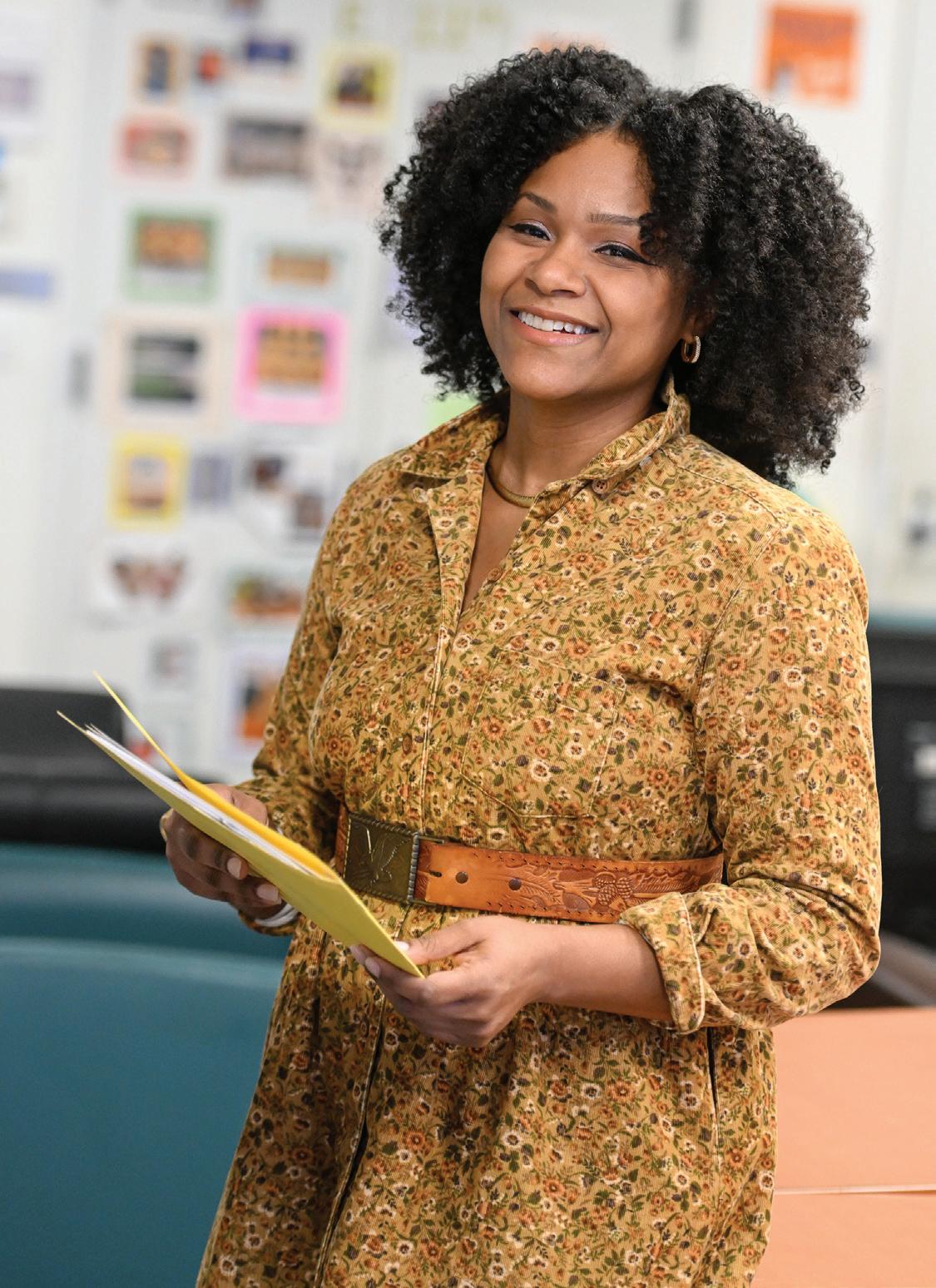
→ → → → →
—TanayaSantiago ServiceCoordinatoratEast11th
“I grew up around people from various backgrounds. I was surrounded by various races, abilities, and many different identities. I knew that diversity was a strength even though I didn’t have the word for it. And so when the opportunity to join the DEIA committee came up, I felt very, very excited about it.”
—MurialKing DirectorofTraining
“I was inspired to join the committee because I want to contribute in any way I can to help others; regardless of race, creed, color, and origin. I thought ‘Why not start here?”
—MelissaToonkel ProgramDirectorat985BrucknerBlvd
Some of you may know me as the host of The Ricki Lake Show, as well as for my other movies and documentaries, but what you may not know is that I am also an outspoken advocate for mental health. And while I am often celebrated for my role as the youngest talk show host ever, what I cared most about the show was how we started a dialogue with real people about real issues, which were always addressed openly and without judgment. Community Access does that, as well: good and necessary work provided to people without judgment.


RICKI LAKE: THE STRENGTH IN STRUGGLE S

















VISIT TO GC
Ricki and friend Liza join Cal Hedigan for a visit to our Gouverneur Court building with program director Laura Rhymer (far right) and Community Access board members Mary D’Souza and Laura Gould.
 Ricki Lake, Host of The Ricki Lake Show (1992–2004) Ricki Lake as Tracy Turnblad - Hairspray (1988)
Ricki Lake, Host of The Ricki Lake Show (1992–2004) Ricki Lake as Tracy Turnblad - Hairspray (1988)
I’ve had the good fortune to spend time visiting Community Access’ supportive housing developments. I am blown away by the beauty of your buildings and your people. I met the warmest staff and tenants, and it was immediately apparent that Community Access nurtures deep, genuine connections, which we all need. As humans, we need to be seen, to be heard, and to be loved unconditionally, because these connections have the power to heal. I know this because it is in sharing my own troubles that brought me healing.
In January 2020, I shared my battle with increasing hair loss. It deeply impacted my mental health and affected every aspect of my life, including my work, my personal relationships, and my self-image. Every time I looked in the mirror or took a shower, I felt bad about myself. It was a lonely struggle, but when I finally told my story, I felt set free, largely based on the outpouring of support I received from the public.













Additionally, like so many of the individuals Community Access serves, I have also struggled with mental health due to major traumas and losses. My former husband, one of my greatest teachers and deepest loves, struggled with bipolar disorder. After facing much hardship, he made the decision to take his life, and though I tried to comfort myself with the idea that he was at peace, I was heartbroken. My beloved dog, Mama, who I adopted a year before his death and served as my little healer afterward also unexpectedly fell ill and died. She helped me through my depression, and when I married my new husband, Ross, we became a family of three. I bring her up because I know Community Access respects the healing power of our animals. It’s why tenants can have pets, and why they run their pet adoption program: Pet Access. This is what sets Community Access apart: its humanity.









I am happy to announce, in seeing the wonderful work that Community Access does, I have made a commitment to join its Board of Trustees to help lend my voice to this important work, and I am so proud to be involved with such a compassionate organization.



























Ricki Lake is an Emmy Award-winning actress, television host, producer, documentarian, and activist. She has starred in over 50 television and film roles, including the classics Cry Baby, Cecil B. Demented, and Hairspray—which earned her an Independent Spirit Award Nomination for Best Female Lead. At only 24, she became the youngest talk show host in history and went on to win a Daytime Emmy for The Ricki Lake Show. Her documentary films, The Business of Being Born and The Business of Birth Control, have garnered attention at the Tribeca Film Festival and other festivals across the country and shed important light on the dangers that women are often exposed to through routine medical practices. In 2022, Ricki joined Community Access’ Board of Trustees.

VISIT TO COLLECTIVEARTArtists







 Arturo Sitjar (left) and Pablo Martinez (right) meet with Ricki in our Art Collective Studio.
Arturo Sitjar (left) and Pablo Martinez (right) meet with Ricki in our Art Collective Studio.
“I know Community Access respects the healing power of our animals. It’s why tenants can have pets, and why they run their pet adoption program: Pet Access ”
OOS OOS NOW NOW NOW OOS THAT’S WHAT I CALL THE


Seven Long-Time Employees Share Their Life With Community Access




Community Access works hard to be the employer of choice in supportive housing and mental health services in NYC. We’re devoting more resources than ever toward investing in staff development, employee benefits, training, team-building, and more.
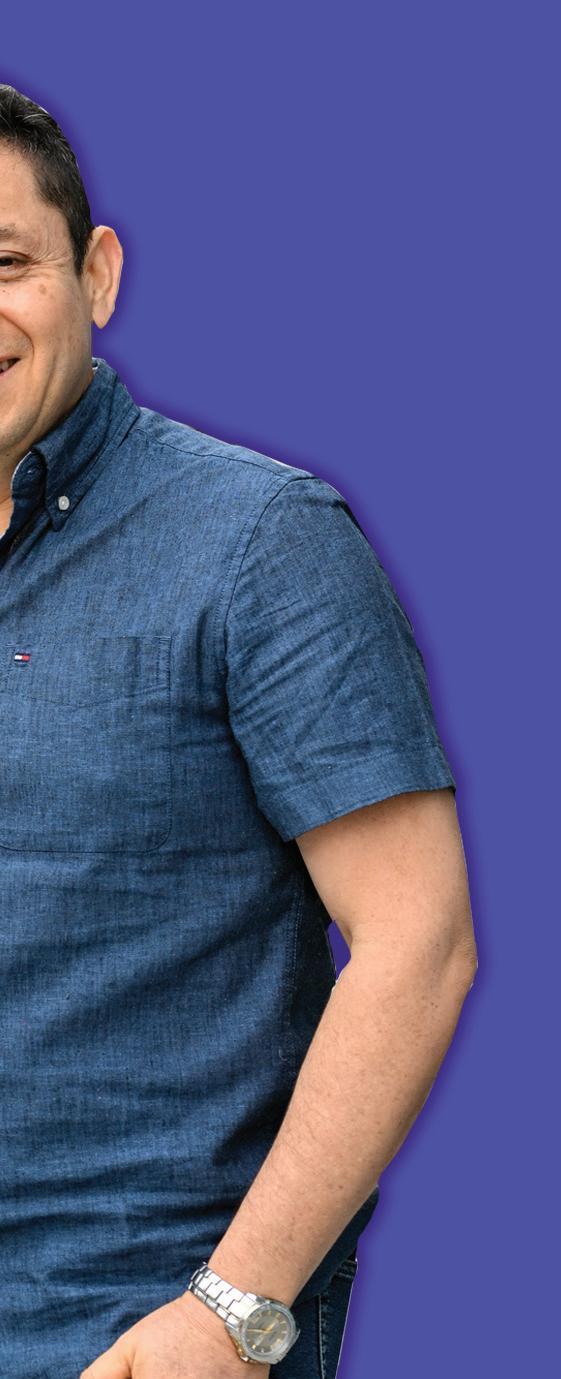


The employees of Community Access—all 350 of them!—are the heart and soul of our work, and many staff members stay and grow in careers that last for 5, 10, and even 20+ years! We spent time with seven long-time
employees who celebrated 20 years of employment with Community Access over the last few years. Gathering together to mark this milestone is a tradition we started a decade ago, and we were so pleased to be able to play catch up with the staff whose anniversaries fell during the pandemic.
We’re throwing it back to the start of the new Millennium to introduce you to this fab group who all started working with Community Access in the 00’s:
Journeys 20+ Years in the Making

Pamela Robbins has been the Education Specialist at Howie the Harp for 21 years! Through her work, she helps peers prepare to take on life-changing jobs in human services— armed with strong skills in writing, communications, public speaking, and advocacy. A former librarian, she even spends time during lunch and at the end of each training day providing additional practice. She has won two teaching awards for her dedication to her students. Pamela even penned the lyrics and music for the
Center’s alma mater song, which students have proudly performed at graduation events for years.

Classes with Pamela are memorable and uplifting: dynamic, engaging, and interactive. Outside of Community Access, Pamela is a playwright, actress, and writer—having written plays that have been performed at nonprofits and blackbox theatres across the city. A collection of six of her plays, called Not What They Seem, is available on Amazon.

For Andres Acosta, Community Access has also been a family affair. Before he started working with us 23 years ago, his father had also worked with us for several years in maintenance— and Andres was so proud to carry forth his father’s work, with pride and a great level of passion. He is a familiar and happy face for tenants and staff across the agency, and never dreamed that what had started

out as just a job would turn into being a part of a huge extended family. Andres lives in New Jersey, so he wakes up at 5 a.m. every day to ensure that he can get to work on time and bring his best self to his job—one that he describes as an “art” where he can bring life back to a space. On the way to work, he always listens to salsa and romantic music to pass the time.
Wesley Lafayette Program Manager
W P





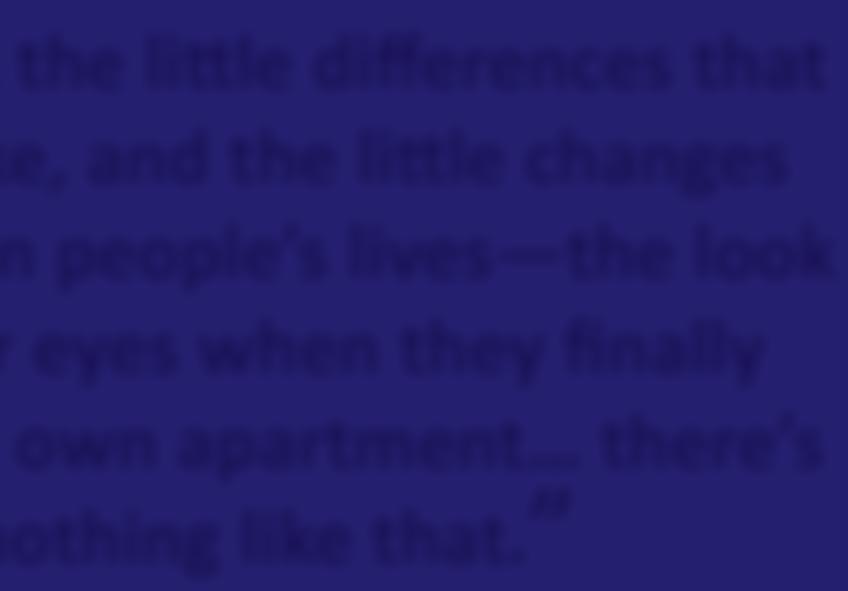

In his 21 years with Community Access, Wesley has changed the lives of so many people as the Program Manager in our transitional apartment program. He spends his days checking in with residents and staff and traveling around to different sites. And, at the office, he has so many special memories over the years of time with colleagues: birthdays, holidays, community meals together, and friendships. Throughout his tenure at Community Access, Wesley has learned that nothing is impossible. His refusal to give up and to show up every day for participants is what makes him a true advocate.
Having lived in all of the boroughs except Staten Island, Wesley is a born and raised New Yorker and loves learning about all parts of the city, his favorite area being Harlem. When he’s not at work, you may find him dancing—he enjoys choreographing, especially hip-hop—but you’ll never find him doing ballet.
 Pamela Robbins Education Specialist
Pamela Robbins Education Specialist
“It’s just the little differences that we make, and the little changes you see in people’s lives—the look in their eyes when they finally get their own apartment… there’s nothing like that.”
21 YEARS 21 YEARS 23 YEARS
“It’s very rewarding work. You get to see the fruits of your labor. Graduates come back all the time and say how helpful my classes were. I love seeing how people grow and change.”
“It gives me satisfaction to help take care of the apartments, and leave a home looking new again. That gives me pride. I’ve stayed this long at Community Access because I feel at peace here.”
AAndres Acosta Painter
Chris Barrey Director of Data Management and Billing
An Arizona native, Chris came to New York City in hopes of being surrounded by the vibrant art and music scene. He quickly learned about Community Access soon after coming to the city and knew he wanted to be a part of it. In his first role as a Service Coordinator, Chris remembers packing his backpack full of CDs on his route to work, mostly listening to burned CDs downloaded from Napster and Soulseek.
Twenty years later, Chris Barrey has remained deeply committed to the organization and its work, taking on various roles in his two decades of service: Service Coordinator in the Treatment Apartment Program, Quality Assurance Manager, Deputy Director of our treatment program in the East Village PROS program, Deputy Director of Quality Improvement—and now as Director of Data Management, where he supervises the entitlements department, works on policy writing, helps with Medicaid billing, and ensures that all runs smoothly.
23 YEARS 25+ YEARS

Steven’s 25+ years with Community Access have led to transformative growth for both him and the people he serves. Having experienced mental health concerns firsthand, Steven wanted to be a peer provider to show others that mental health should not be a limitation in finding meaningful careers and living fulfilling lives. He started his career as an Internship Coordinator at Howie the Harp job training program, moved on to work as a staff member at our treatment program in the East Village, and now works at the Respite Center, which provides one-onone support and recovery services for people experiencing mental health crises.
In his work at the Center, Steven works long, twelvehour shifts—but he emphasized that this is necessary in building connection. He loves providing self-advocacy education, training others in recovery, supporting group and individual peer-led activities, and being a source of support for so many. He enjoys seeing how the organization has grown and changed over the years.


Doretha ensures that those living at Access House are met with the quality care and assistance they need to thrive in their living space. She helps people with their day-today needs, monitoring medication, assisting with laundry, helping with meal preparation, and showing up for people with a smiling face. She said that her favorite part of working for this organization is
Tiffany has spent the past 23 years with Community Access being a source of joy and light for the tenants she works with—ensuring that everyone feels a sense of belonging. When she’s not visiting the tenants in their homes or completing day-to-day administrative work, she’s organizing events and outings. She fondly remembers filling up a bus with tenants to see The Lion King on Broadway, and cooking a Thanksgiving meal for 76 attendees—making everyone her famous fried chicken and lasagna. She even had outdoor gym equipment installed in the backyard of Franklin Avenue so people could make the most of the warmer days.
Tiffany believes in meeting people where they are, and she loves the Community Access family for that reason.
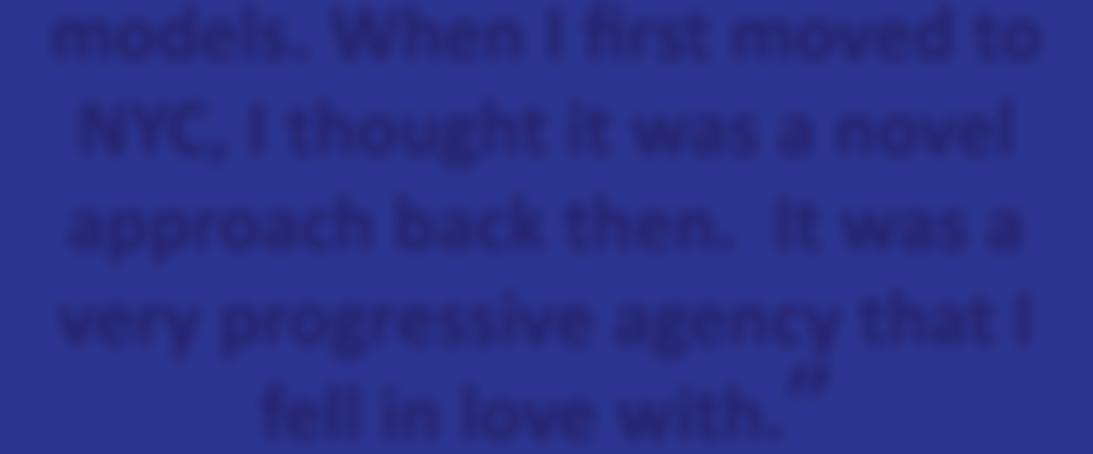



being a part of a welcoming family and community, and that spending time with residents during the holidays is her favorite time of the year.
A native New Yorker, Doretha also loves to leave the city when she’s able. She has enjoyed several trips outside of the country, spending time relaxing in the sun surrounded by friends and family and getting away from the hustle and bustle of New York.



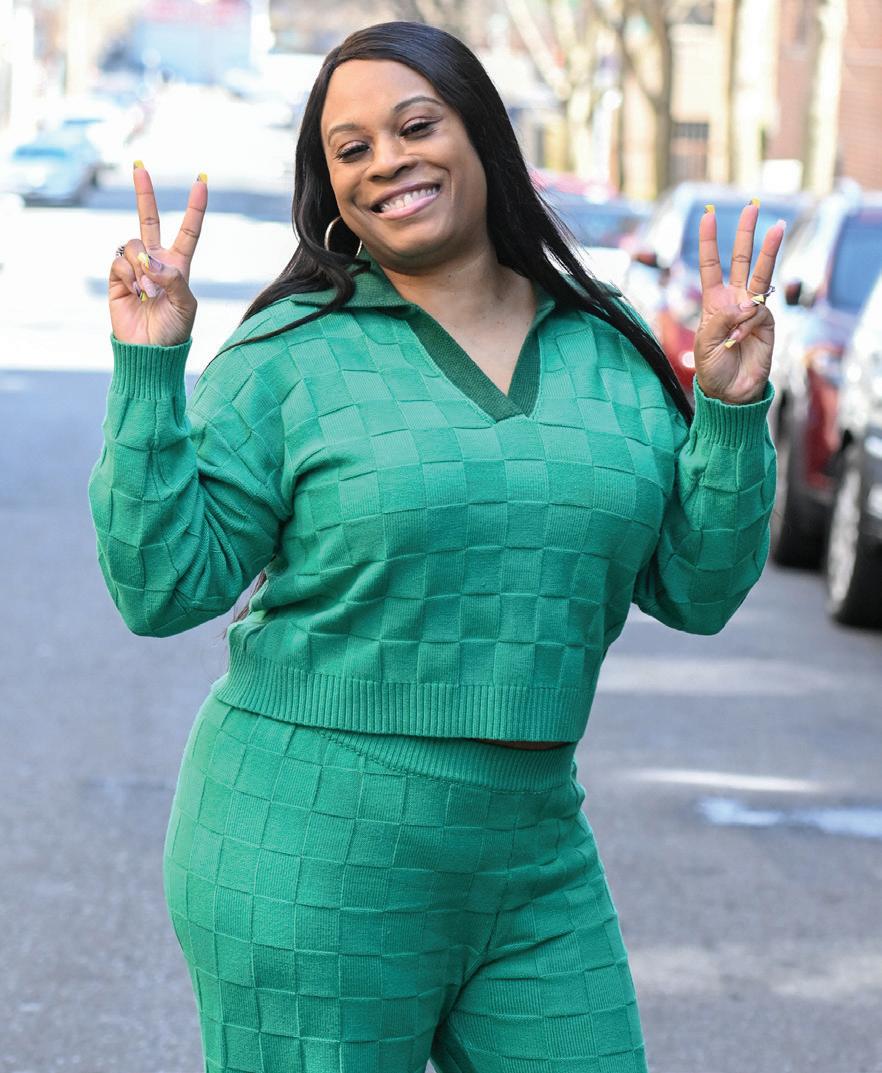
20 YEARS




“
Community Access is very nonjudgmental. They believe that everyone deserves housing. It’s the foundation for people’s futures.”
“I remember when I worked at Howie the Harp, we really struggled to get people employed. Now there are so many opportunities and positions available. It’s amazing to see change the whole recovery movement.”
C
SSteven Boccia Respite Worker
TTiffany Conway Program Director
“I love how Community Access treats people living with mental health concerns. They see them as people. I’m motivated each day to be there for them, because not all of them have families who are there for them.”
DDoretha Parsons Housing Counselor
“
21
I was very interested in the housing first and harm reduction models. When I first moved to NYC, I thought it was a novel approach back then. It was a very progressive agency that I fell in love with.”
YEARS
Earn Your HTH Diploma and Advance Your Career
To apply, visit: communityaccess.org/ HTH
Earn your diploma and begin a career as a peer specialist, OR
If you are a working peer, connect with us for ongoing coaching and employment assistance!
BOARD OF DIRECTORS

Stephen H. Chase, President; Dan Wurtzel, Vice President; Ramesh Shah, Treasurer; Mary Massimo, Ph.D., Secretary
Mary D’Souza, Martha Dabagian, Theodore Francavilla, Laura Gould, LCSW, Dr. Cynthia B. Green, Denis Jacob, Diane Louard-Michel, Barbara Malatesta, Adil Nathani, Catherine Patsos, Bradley Soto, Radhika Vars, and Jose Vazquez
Strategic Advisors: Anastasia Vournas and David Kuperberg
Trustees: John Turturro, Chair; Kendall Atterbury, Jeremy Greenberg, Sally Haver, Ricki Lake, Mark Reed, David Segura, Andrew Smith, Ariel Stillman, and Andrew Wenner
Community Access Senior Management: Cal Hedigan, Chief Executive Officer • Michelle Des Roches, Chief Program Officer • Christopher Lacovara, Chief Financial Officer and General Counsel
Pat Johnson, Chief Operating Officer • John Williams, Chief Development and Communications Officer • Morenike Williams, Chief People Officer C Magazine Credits: Design: JJKO Design • Featured Photography: Sean Sime • Communications: Anat Gerstein, Inc.
www.communityaccess.org









 1169 River Ave
Project team: Maddd Equities LLC; Alembic Community Development; Aufgang Architects; Urban Quotient; Joy Construction Corp 245 units in lease-up
1169 River Ave
Project team: Maddd Equities LLC; Alembic Community Development; Aufgang Architects; Urban Quotient; Joy Construction Corp 245 units in lease-up







 Cal Hedigan Chief Executive Officer
Cal Hedigan Chief Executive Officer































































































































 20 people in the call
Cecelia Hoskins
Asher Harris Scuria Rahman Ana Morán
Antwan Rucker Cal Hedigan
Romie Grant Tara Donahue
Khadeidra Allen
Murial King
Chris Barrey
Tanaya Santiago
Jon Rowe
Melissa Toonkel
Angela Mora
Aurora (Rorie) Brito Erica Enleton Michelle Des Roches
Barbara Laing
Nike Williams
20 people in the call
Cecelia Hoskins
Asher Harris Scuria Rahman Ana Morán
Antwan Rucker Cal Hedigan
Romie Grant Tara Donahue
Khadeidra Allen
Murial King
Chris Barrey
Tanaya Santiago
Jon Rowe
Melissa Toonkel
Angela Mora
Aurora (Rorie) Brito Erica Enleton Michelle Des Roches
Barbara Laing
Nike Williams













 Ricki Lake, Host of The Ricki Lake Show (1992–2004) Ricki Lake as Tracy Turnblad - Hairspray (1988)
Ricki Lake, Host of The Ricki Lake Show (1992–2004) Ricki Lake as Tracy Turnblad - Hairspray (1988)


















































 Arturo Sitjar (left) and Pablo Martinez (right) meet with Ricki in our Art Collective Studio.
Arturo Sitjar (left) and Pablo Martinez (right) meet with Ricki in our Art Collective Studio.




















 Pamela Robbins Education Specialist
Pamela Robbins Education Specialist













